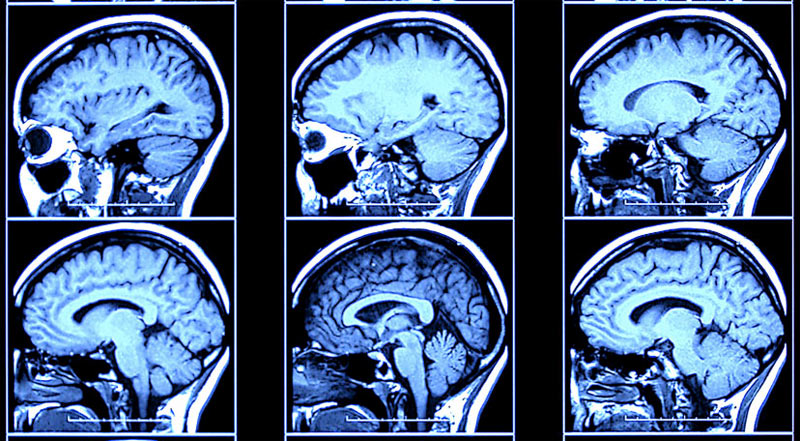Brain Scans Predict Alzheimer's Risk in Some Patients

Brain scans may help identify which individuals with a mild decline in their mental abilities will go on to develop Alzheimer's disease, according to a new study.
The research focused on patients with mild cognitive impairment, a condition in which people experience noticeable declines in their cognitive function, including memory and language problems. These changes are not severe enough to interfere with everyday activities, according to the Alzheimer's Association.
It is known that about 15 to 20 percent of such patients will go on to develop Alzheimer's, but researchers don't know which ones.
In the new study, which involved magnetic resonance imaging (MRI), researchers were able to identify a high-risk group – patients who had a 69 percent chance of developing Alzheimer's disease in the next year.
The study used the MRI scans to identify brain characteristics that put people at risk for Alzheimer's. The researchers determined some patients had just a 3 percent risk of developing Alzheimer's in the next year, which is about the same as for a healthy older person. Others had a 40 percent risk of developing the condition in the next year, or double the risk associated with a diagnosis of mild cognitive impairment, said study researcher Linda K. McEvoy, an assistant professor in the department of radiology at the University of California, San Diego School of Medicine. Still others were identified as part of the high-risk group.
"The MRI is giving us quite a bit more information than just the MCI [mild cognitive impairment] diagnosis can," McEvoy said.
A similar technique could be used one day by doctors to determine the Alzheimer's risk for patients with mild cognitive impairment. However, McEvoy said, the patients in the study were not representative of the general population — they had been selected to exclude people who experienced other types of memory problems, such as those due to a stroke. A larger study would be needed before the results could be translated to the doctor's office.
Sign up for the Live Science daily newsletter now
Get the world’s most fascinating discoveries delivered straight to your inbox.
Alzheimer's disease risk
McEvoy and her colleagues reported looking at MRI scans of the brains of 203 healthy adults, 164 patients with Alzheimer's disease and 317 patients with mild cognitive impairment. Each patient had their brain scanned at the start of the study and again a year later.
The researchers first compared the brains of Alzheimer's disease patients with those of healthy people, looking for differences in the degree of shrinkage, or atrophy, in particular areas of the brain. Once they developed a way to distinguish these two groups of people, "we could use the same equations on the MCI subjects to determine their risk of developing Alzheimer's disease," McEvoy said.
When the researchers included information about how the brains had changed in the time between the two scans, they were able to identify the high-risk group.
The work is very well done and "adds to the body of literature supporting the idea that MRI provides predictive information" about Alzheimer's disease risk, said Dr. Clifford Jack of the Mayo Clinic in Rochester, Minn. Jack, who was not involved in the study, has also shown that brain images can help predict Alzheimer's disease risk.
Future applications
Information in this study will be critical once we have ways to prevent Alzheimer's disease, McEvoy said. It is estimated that as many as 5 million Americans have Alzheimer's disease, according to the Centers for Disease Control and Prevention. The condition is the sixth leading cause of death. "Currently there's no cure or prevention for Alzheimer's disease. But there's a lot of research going on right now into different potential therapies. If any of those therapies turn out to be useful, then this kind of information will be crucial — a doctor needs to know who's at higher risk in order to treat them," McEvoy said.
Also, she said, if there are side effects to therapies, people may want to take them only if they're at very high risk for the disease.
The study will be published in the June issue of the journal Radiology.
Pass it on: MRIs may help determine which patients with mild cognitive impairment will go on to develop Alzheimer's disease.
Follow MyHealthNewsDaily staff writer Rachael Rettner on Twitter @RachaelRettner.
This story was provided by MyHealthNewsDaily, a sister site to LiveScience.

Rachael is a Live Science contributor, and was a former channel editor and senior writer for Live Science between 2010 and 2022. She has a master's degree in journalism from New York University's Science, Health and Environmental Reporting Program. She also holds a B.S. in molecular biology and an M.S. in biology from the University of California, San Diego. Her work has appeared in Scienceline, The Washington Post and Scientific American.









